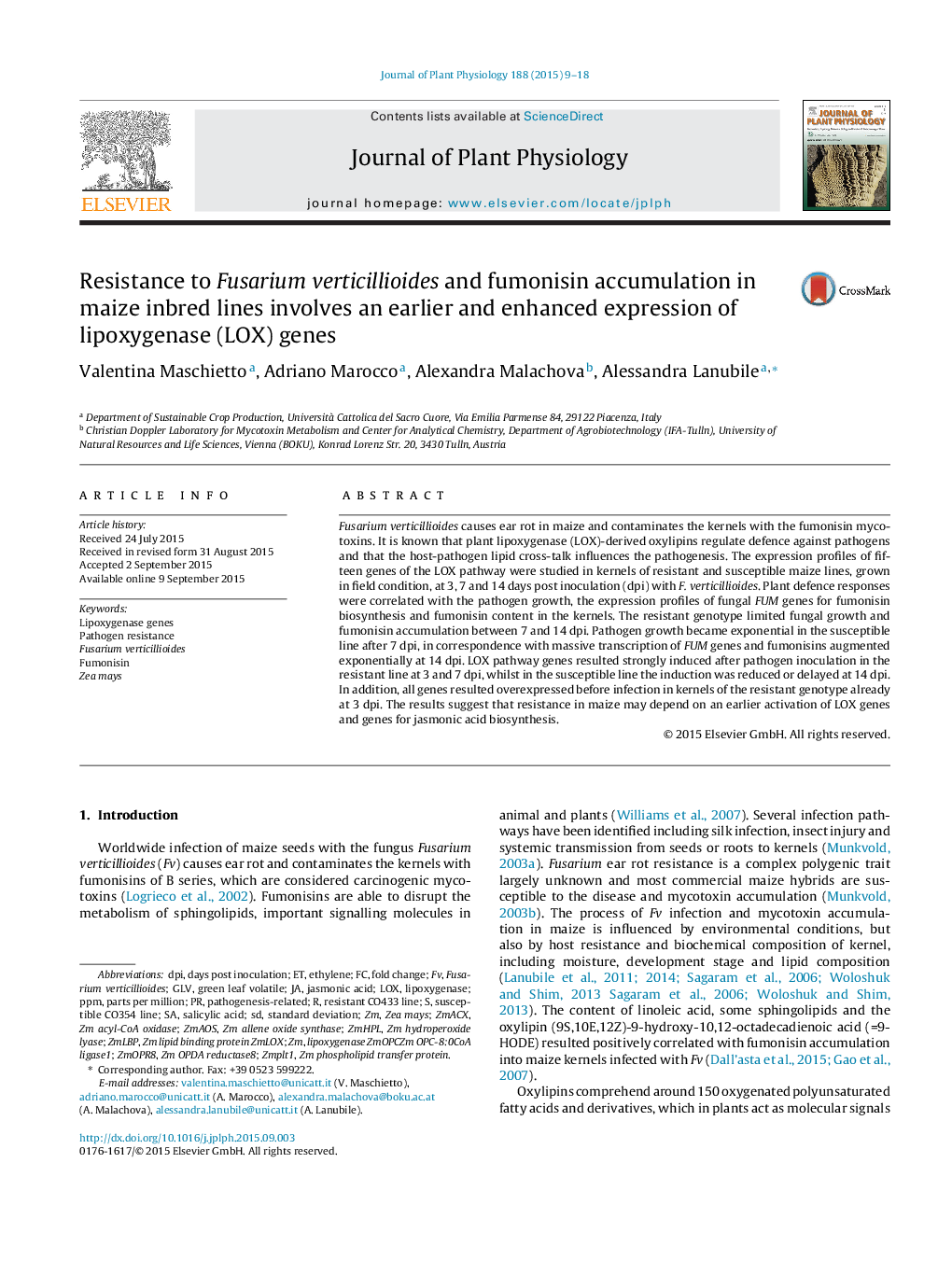| Article ID | Journal | Published Year | Pages | File Type |
|---|---|---|---|---|
| 2055566 | Journal of Plant Physiology | 2015 | 10 Pages |
Fusarium verticillioides causes ear rot in maize and contaminates the kernels with the fumonisin mycotoxins. It is known that plant lipoxygenase (LOX)-derived oxylipins regulate defence against pathogens and that the host-pathogen lipid cross-talk influences the pathogenesis. The expression profiles of fifteen genes of the LOX pathway were studied in kernels of resistant and susceptible maize lines, grown in field condition, at 3, 7 and 14 days post inoculation (dpi) with F. verticillioides. Plant defence responses were correlated with the pathogen growth, the expression profiles of fungal FUM genes for fumonisin biosynthesis and fumonisin content in the kernels. The resistant genotype limited fungal growth and fumonisin accumulation between 7 and 14 dpi. Pathogen growth became exponential in the susceptible line after 7 dpi, in correspondence with massive transcription of FUM genes and fumonisins augmented exponentially at 14 dpi. LOX pathway genes resulted strongly induced after pathogen inoculation in the resistant line at 3 and 7 dpi, whilst in the susceptible line the induction was reduced or delayed at 14 dpi. In addition, all genes resulted overexpressed before infection in kernels of the resistant genotype already at 3 dpi. The results suggest that resistance in maize may depend on an earlier activation of LOX genes and genes for jasmonic acid biosynthesis.
